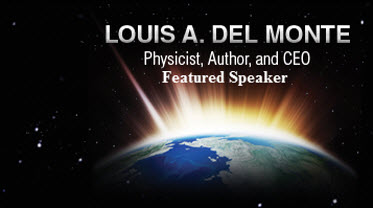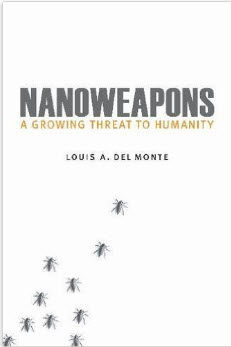This is taken from Appendix 4 my new book, How to Time Travel, to be published by early September 2013.
What does philosophy have to do with science? The answer is simple. Your philosophy of time will determine whether you believe time travel is even a scientific possibility. Of the three major philosophical schools on time, only one allows for the possibility of time travel to both the past and future. From this standpoint, it is critical that you know the major philosophies of time and know where you stand on the subject.
Philosophers have been pondering the nature of time for thousands of years. A philosophy of time weaves through almost every ancient culture. For example, the earliest view of the nature of time by a Western philosopher dates back to ancient Egypt and the Egyptian philosopher Ptahhotep (2650–2600 BCE). Indian philosophers and Hindu philosophers also wrote about time dating back to roughly the same period. The ancient Greek philosophers, such as Parmenides, Heraclitus, and Plato, wrote essays about the nature of time roughly around 500 BCE to 350 BCE.
Many early writers questioned the nature of time, the cause of time, and the unidirectional flow of time, often referred to as the “arrow of time.” One of the most interesting aspects when studying the philosophy of time is that some cultures, like the Incas, dating back to about the thirteenth century, considered space and time woven together. Centuries before Einstein published his now-famous special theory of relativity, which scientifically unified space and time (i.e., spacetime), the Incas philosophically unified space and time into a single concept called “pacha.”
There is a question about time that has ancient roots and that continues to trouble modern scientists and many religions, namely: Did time have a beginning? Through the ages, philosophers and scientists have struggled with this question, and no widely accepted answer has emerged. Not surprisingly, the “time had no beginning” camp, which originated with the ancient Greeks, held solid ground for over several millennia. The Greeks were formidable philosophers. However, the emerging world religions, including Judaism, Christianity, and Islam, slowly chipped away at the Greek philosophy of an infinite past. They simply taught that a deity made the world, and this suggests a beginning of time. Religious philosophers backed these teachings. Christian philosophers, such as John Philoponus, Muslim philosophers, such as Al-Kindi, and Jewish philosophers, such as Saadia Gaon, argued mathematically that infinities do not exist in reality. If you accept this premise, logically you are backed into a corner and must concede that time had a beginning. In other words, if infinities do not exist in reality and are merely a mathematical construct, then time cannot have an infinite past. This argument was refined and became known as the “argument from the impossibility of completing an actual infinite by successive addition.” Simply stated, you cannot complete infinity by adding successive events. Since an infinite past would imply the addition of success events, it ruled out an infinite past. Some notable scientists aligned with this thinking, the most famous today being Stephen Hawking, who argued that time began with the big bang. Dr. Hawking believes that events before the big bang have no observable consequence. It is not clear that this proves time had a beginning. Other physicists, such as Lawrence Krauss, author of A Universe from Nothing (2012), and I, author of Unraveling the Universe’s Mysteries (2012), argue events occurred that preceded and caused the big bang, which implies time preceded the big bang. It does not prove, though, that time has an infinite past or a beginning.
Almost all of us believe we understand time. In fact, when first asked a question about the nature of time, most of us will begin to explain it. However, as we attempt to explain it, the complexity of time’s nature emerges. Augustine of Hippo (354 CE–430 CE), known to Christians as St. Augustine, eloquently made this observation: “What then is time? If no one asks me, I know: if I wish to explain it to one that asketh, I know not.” The most difficult thing I encountered regarding the nature of time was trying to explain it to my six-year-old grandchild. That is when Einstein’s famous quote hit home: “If you can’t explain it to a six-year-old, you don’t understand it yourself.”
Fortunately, though, as the sands of time counted millennia after millennia, three major philosophical schools on the nature of time emerged. We will examine them and discuss their implications regarding time travel in our next post.












Time a measurement of the revolution of the planets and its stars….the cyclical spin or routine rounds of our sun and moons. time a cycle of things to come, the way things are supposed to happen…time is the way we travel; but time is not moving….is stands still somehow….
looking forward to the next post .. great blog sir
Thanks for this. As a writer of time travel novels, it’s probably about time I caught up on the philosophy behind it as well as the physics. I look forward to the next post.
I am in fact delighted to read this website posts which consists
of lots of valuable information, thanks for providing such statistics.
Hi there mates, pleasant paragraph and good urging
commented here, I am truly enjoying by these.